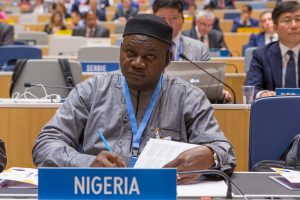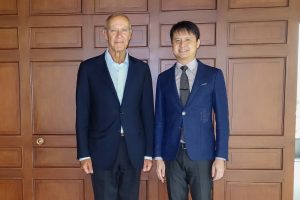
As the UN World Intellectual Property Organization’s (WIPO) General Assembly gets underway and the budget for the upcoming biennium is determined, there are two developments that occurred during the first week of meetings that are worth mentioning: (1) Nigeria’s ratification of WIPO copyright treaties and (2) the debates surrounding the interpretation of the Intergovernmental Committee on Intellectual Property and Genetic Resources, Traditional Knowledge and Folklore’s (IGC) proposed programme of work.
As of October 4th, 2017, Nigeria has adopted and ratified the WIPO Copyright Treaty (WCT), WIPO Performances and Phonograms Treaty (WPPT), Marrakesh Treaty to Facilitate Access to Published Works for Persons Who Are Blind, Visually Impaired, or Otherwise Print Disabled (Marrakesh Treaty), and the Beijing Treaty on Audiovisual Performances (Beijing Treaty). Audu Ayinla Kadiri, a Permanent Representative of Nigeria to the UN and other international organizations in Geneva stated that “we [Nigeria] have a very creative Nollywood industry, we have young and enterprising entrepreneurs, we have new businesses coming up here and there, we have a lot of innovative hubs in Nigeria. So, these treaties will serve as a boost to all these trends, which are very positive”.
As discussed in our previous post, the Delegation of Senegal on behalf of the African Group submitted a proposal for the IGC regarding a potential work program for the 2018/19 Biennium. In addition to this, the European Union (EU) created a proposal as well for the mandate of the IGC. The main differences between the two proposals are that The African Group’s proposal “envisages the convening of a high-level negotiating meeting (diplomatic conference) in the first quarter of 2019 to conclude and adopt a legally binding instrument to protect genetic resources”, whereas the EU proposal “is based on further studies and examples of national experiences to narrow gaps on core issues, such as definitions, subject matter, objectives, and the relationship with the public domain”. More importantly, the EU proposal states that until everything in its proposed mandate is accepted, it will be understood that nothing has been accepted. This has led to a contention amongst member states—particularly developing countries—on how to interpret and adopt the EU proposal’s core premises.
The IGC will aim to reach an agreement on the proposal’s main objectives and will report its progress in 2019.





